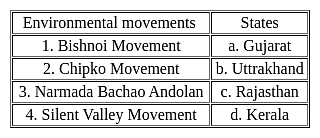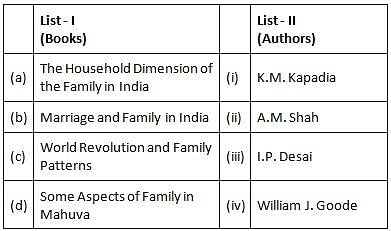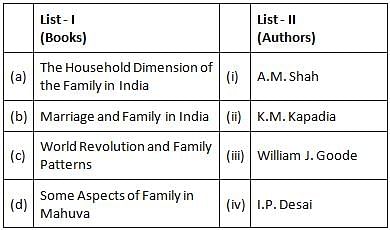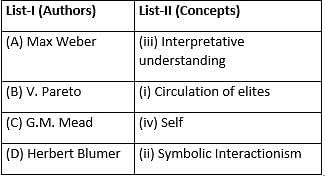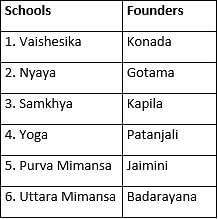UGC NET Paper 2 Sociology Mock Test - 7 - UGC NET MCQ
30 Questions MCQ Test UGC NET Mock Test Series 2024 - UGC NET Paper 2 Sociology Mock Test - 7
Who among the following said that wealth increases in the same proportion as poverty?
The sum total or the aggregate of available units in a specified research study is called _______.
| 1 Crore+ students have signed up on EduRev. Have you? Download the App |
Which research technique would most likely be used by a symbolic interactionist?
Which of the following are the economic effects of migration
1. Reduces the pressure of population on land
2. Productivity on land increases.
3. Increase in per-capital income
4. Decrease in per-worker output
Choose the correct codes
Which social movement is associated with the advocacy for the rights of agricultural workers, fair wages, and better working conditions in the agricultural sector?
The sequential operations in scientific research are:
________ implies a value-judgement about the folkways.
Match List-I with List-II and select the correct answer from the codes given below the lists.
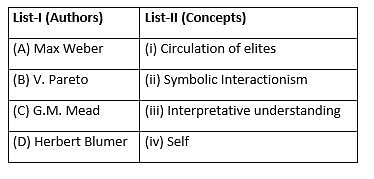
A, B, C, and D are respectively.
The process by which working-class people assume life style and individualistic values of the so-called middle classes is known as:
Given below are two statements, one labelled as Assertion (A and the other labelled as Reason (R):
Assertion (A): Both Lewis Coser and Randall Collins are grounded under the conflict school.
Reason (R): Both of them highlight the function of conflict in maintaining society.
Who regarded the state as ‘’a committee for managing the common affairs of the whole bourgeoisie’’?
According to Lester Ward, applied sociology was intended to:
The variable sum concept of power is based on the assumption that:
With reference to the Schools of Indian Philosophy, Which of the following are matched Correctly?
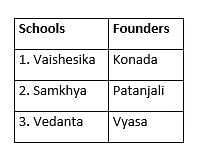
Consider the following statements:
1. India will become the third nation in the world to launch a Human Spaceflight Mission.
2. The Indian Space Research Organisation (ISRO) successfully conducted the qualification test of the Cryogenic Engine for the Gaganyaan Programme.
Which of the above statements is/are correct?
|
16 docs|120 tests
|


